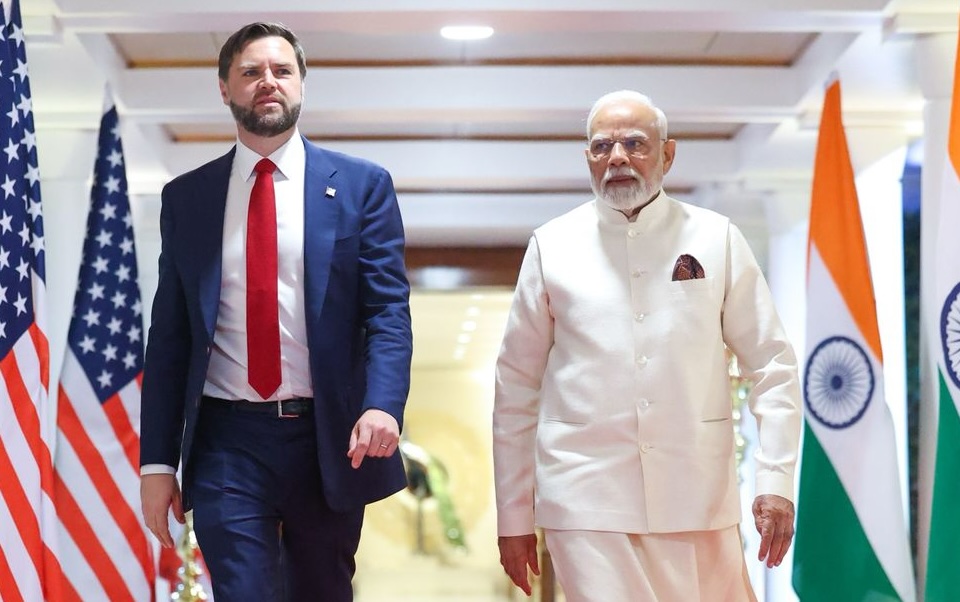Already a subscriber? Make sure to log into your account before viewing this content. You can access your account by hitting the “login” button on the top right corner. Still unable to see the content after signing in? Make sure your card on file is up-to-date.
Vice President JD Vance has held talks with Indian Prime Minister Narendra Modi during a four-day visit to India aimed at working out the framework of a new US–India trade deal.
Some shit you should know before you read: If you’re unaware, the US–India trade relationship is one of the most significant and fastest-growing economic partnerships in the world. In 2024, the two countries exchanged roughly $130 billion in goods and services, with India holding a trade surplus of about $46 billion, based on US trade data. Both countries are aiming to push that number toward $500 billion by 2030 through a deal that would deepen their economic relationship, expand market access, and better integrate their supply chains. At the same time, the US has been aggressively pursuing a strategic shift in global production away from China and toward allied countries like India. This realignment is fueled by escalating concerns over China’s military expansion, which some argue is being accelerated by the sheer volume of manufacturing and capital flowing into Chinese industries—much of it from Western companies. Supporters of the pivot believe moving more production to India could help weaken China’s ability to finance its military growth through foreign trade.

What’s going on now: Today, Vice President Vance met with Indian Prime Minister Narendra Modi in New Delhi to discuss a wide range of issues aimed at deepening the US–India partnership, with a strong focus on trade, defense, technology, and investment. According to a statement from Modi’s office, the two leaders “reviewed and positively assessed” the progress made in bilateral cooperation and welcomed the efforts being taken toward finalizing a complete trade agreement.
Vance’s office echoed this sentiment, describing the talks as a continuation of the “mega partnership” outlined during Modi’s earlier meeting with President Trump in Washington.
This all comes as Texas and New York have already taken action to ban DeepSeek from government devices, citing national security and data privacy concerns. Back in December, Texas Governor Greg Abbott ordered state agencies and government employees not to download or install DeepSeek. Similarly, New York officials announced a statewide ban earlier this month over concerns it could be used for data collection by the Chinese Communist Party.
Beyond trade, defense cooperation took center stage in the discussions, as India and the US prepare to sign a new 10-year framework agreement later this year. This would solidify joint defense production, technology transfers, and procurement efforts, including India’s expected purchases of American-made Javelin missiles and Stryker combat vehicles.







